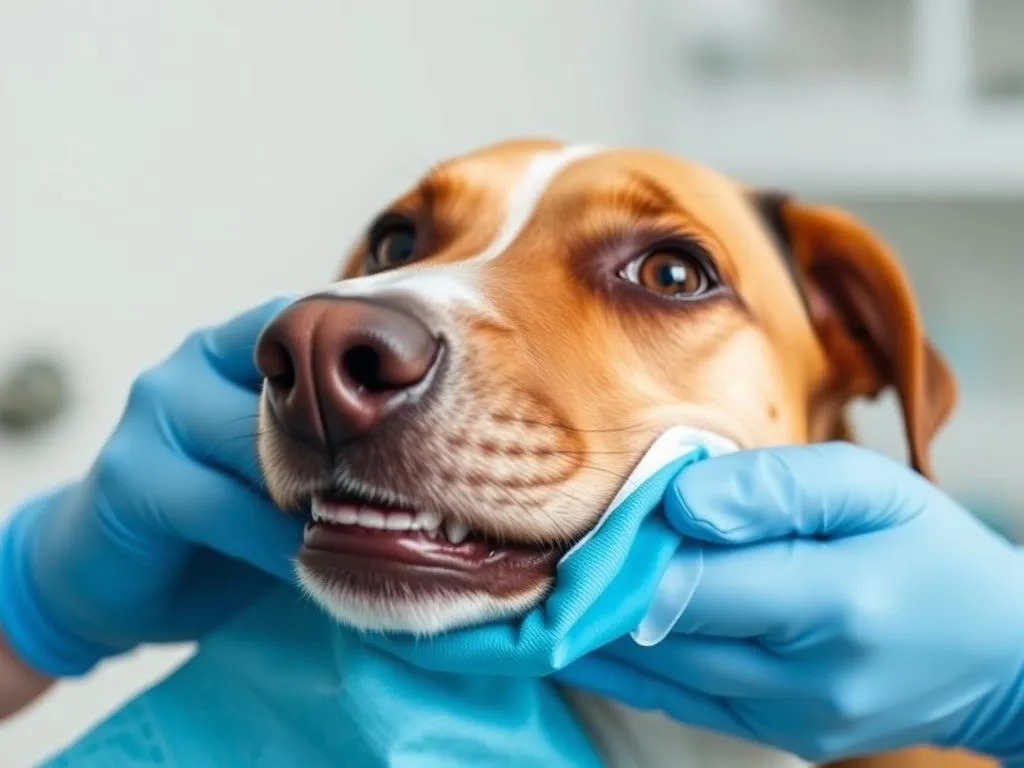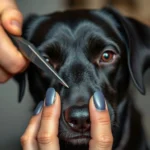
Maintaining the health of our furry companions is paramount to ensuring their happiness and longevity. Among the many aspects of dog health care, dental care plays a crucial role in their overall well-being. Just like humans, dogs can suffer from various dental issues that can lead to serious health problems if left untreated. In this guide, we will explore the importance of dog health care with a special focus on dental hygiene, highlighting the best dog dental wipes for maintaining your pup’s pearly whites.
Understanding Dog Health Care
Importance of Regular Health Check-ups
Routine veterinary visits are essential for dogs, just as regular check-ups are for humans. These visits allow for early detection of common health issues, including obesity, diabetes, and more. Vets also administer essential vaccinations and preventive care, helping to ward off diseases that could significantly impact your dog’s health.
Recognizing the signs of health issues early can make a world of difference. For instance, dogs might display symptoms such as lethargy, changes in appetite, or unusual behavior when something is wrong. Regular health check-ups help you stay informed about your dog’s health status and provide peace of mind.
Nutrition and Diet
A well-balanced diet is foundational for a dog’s health. Essential nutrients, including proteins, fats, carbohydrates, vitamins, and minerals, play a vital role in their growth and energy levels. When choosing the right dog food, consider their age, breed, and any specific health conditions they may have.
Interestingly, a dog’s diet can also influence their dental health. Foods that promote chewing can help reduce plaque buildup, while dental treats can further support oral hygiene. Additionally, some dog foods are formulated with ingredients that promote oral health, making them a smart choice for your furry friend.
The Importance of Dental Care in Dogs
Common Dental Issues in Dogs
Dogs are susceptible to various dental issues, with periodontal disease being one of the most prevalent. This disease begins with the accumulation of plaque and tartar on the teeth, leading to inflammation of the gums (gingivitis). If not addressed, it can progress to more severe conditions, including tooth loss and infections.
Other common dental problems include:
- Tartar buildup: Hard deposits that form on teeth over time.
- Bad breath: Often a sign of underlying dental problems.
- Tooth fractures or injuries: Can result from chewing on hard objects.
Recognizing the signs of dental issues early can help you address them before they escalate. Look out for symptoms such as swollen gums, reluctance to eat, and excessive drooling.
Consequences of Neglecting Dental Care
Neglecting your dog’s dental care can lead to various health complications. Poor dental hygiene not only causes painful conditions in the mouth but can also result in systemic health issues. Bacteria from the mouth can enter the bloodstream, potentially affecting the heart, liver, and kidneys. Additionally, untreated dental problems can lead to chronic pain and discomfort for your dog, impacting their quality of life.
Best Practices for Dog Dental Care
Regular Dental Check-ups
Just as you visit the dentist regularly, your dog should have dental exams at least once a year. During these check-ups, your vet will examine your dog’s teeth and gums, looking for signs of dental disease. They may also recommend professional cleanings, which can help prevent more severe issues down the line.
At-Home Dental Care
Establishing a dental care routine at home is essential for maintaining your dog’s oral health. Regular brushing can significantly reduce plaque buildup and prevent dental diseases. Here are some best practices for brushing your dog’s teeth:
- Use a dog-specific toothbrush: These are designed to fit comfortably in your dog’s mouth.
- Choose the right toothpaste: Human toothpaste can be toxic to dogs, so opt for dog-friendly toothpaste.
- Make it a routine: Consistency is key. Aim to brush your dog’s teeth at least a few times a week.
The Role of Dental Products
In addition to brushing, various dental products can help maintain your dog’s dental hygiene. Dental chews, toys, and treats can promote chewing and help reduce plaque. One particularly effective product is dental wipes. These wipes are designed to remove plaque and tartar while being easy to use.
Best Dog Dental Wipes
What to Look for in Dental Wipes
When choosing the best dog dental wipes, consider the following key factors:
- Key ingredients: Look for wipes that contain ingredients known for their dental benefits, such as chlorhexidine or baking soda.
- Safety and effectiveness: Ensure the wipes are safe for your dog and have been tested for effectiveness in reducing plaque and tartar.
- Ease of use: The wipes should be easy to handle and designed to fit comfortably in your hand.
Reviews of the Best Dog Dental Wipes
Here is a closer look at some of the top-rated dog dental wipes available on the market:
- Product 1: Vet’s Best Enzymatic Dog Dental Wipes
- Features: Enzymatic formula that helps break down plaque and tartar.
- Pros: Easy to use, freshens breath.
-
Cons: Some dogs may not like the texture.
-
Product 2: PetMD Dental Wipes
- Features: Contains natural ingredients and is free from harsh chemicals.
- Pros: Safe for daily use, effectively removes plaque.
-
Cons: May require more effort for stubborn tartar.
-
Product 3: TropiClean Fresh Breath Dental Wipes
- Features: Made with natural ingredients and designed to support oral health.
- Pros: Pleasant scent, easy to use.
-
Cons: May not be as effective for severe dental issues.
-
Product 4: Pura Naturals Pet Organic Dental Wipes
- Features: Organic and biodegradable, made with plant-based ingredients.
- Pros: Eco-friendly, gentle on gums.
-
Cons: Higher price point.
-
Product 5: Arm & Hammer Dog Dental Wipes
- Features: Baking soda formula that helps fight plaque and freshen breath.
- Pros: Affordable, widely available.
- Cons: Some users report a strong scent.
How to Use Dog Dental Wipes Effectively
Using dental wipes is straightforward, but following a few steps can help make the process smoother for both you and your dog:
- Choose a quiet time: Pick a moment when your dog is calm, such as after a walk or playtime.
- Introduce the wipes: Allow your dog to sniff the wipes before using them.
- Wrap the wipe around your finger: This helps you control the application and makes it easier to reach your dog’s teeth.
- Gently rub the wipe on your dog’s teeth and gums: Focus on the back teeth, where plaque tends to accumulate.
- Reward your dog: Offer praise or a treat to create a positive association with dental care.
Additional Tips for Maintaining Dog Dental Health
Incorporating Dental Care into Your Routine
Making dental care a fun activity can help your dog become more comfortable with the process. Use treats as rewards and engage in light play before and after the cleaning process. This not only helps in building a positive experience but also reinforces the importance of dental hygiene.
Other Dental Care Products to Consider
While dental wipes are effective, there are other products worth considering. Dental chews are popular options that can help reduce plaque and tartar while satisfying your dog’s natural urge to chew. Additionally, water additives and dental sprays can be beneficial for dogs that resist brushing or wiping.
When comparing dental chews and dental wipes, consider your dog’s preferences and any specific dental issues they may have. Both can be effective, but they serve different purposes in a comprehensive dental care routine.
Conclusion
Maintaining your dog’s dental health is a critical aspect of their overall well-being. With the right tools, such as the best dog dental wipes, regular check-ups, and a proper at-home dental routine, you can significantly reduce the risk of dental disease and enhance your dog’s quality of life. By integrating dental care into your dog’s health routine, you can help ensure they remain happy and healthy for years to come.
FAQs
How often should I use dental wipes on my dog?
Using dental wipes several times a week is ideal for maintaining oral hygiene.
Can dental wipes replace regular teeth brushing?
While dental wipes can help, they should complement regular brushing for optimal dental health.
Are there any side effects to using dental wipes?
Generally, dental wipes are safe, but always monitor your dog for any allergic reactions or sensitivities.
How can I tell if my dog needs a professional dental cleaning?
Signs that may indicate the need for professional cleaning include persistent bad breath, swollen gums, and difficulty eating. Regular vet check-ups can also help assess your dog’s dental health.









